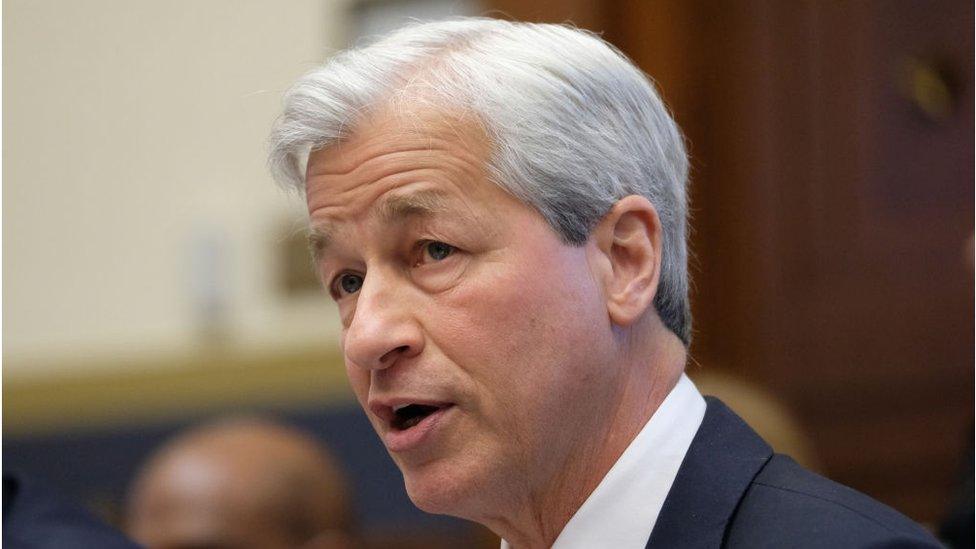US economic growth slows but inflation grows
- Published

The US economy grew by less than forecast in the first three months of this year but inflation gathered pace, which could delay an interest rate cut.
Official figures revealed the economy expanded at an annualised rate of 1.6%, far below expectations and the growth seen in the final months of 2023.
Meanwhile, inflation, which measures the pace of price rises, has increased.
At the start of the year, experts had been forecasting a series of interest rate cuts in the US.
However, inflation is yet to fall back to the Federal Reserve's 2% target, and on Thursday, figures from the US Department of Commerce showed that inflation increased by 3.4% in the first three months of 2024. This is compared to an increase of 1.8% in the final three months of 2023.
Raising interest rates makes borrowing - for things such as loans and mortgages - more expensive and theoretically is meant to encourage people to spend less. The idea is that this helps to bring inflation down by dampening demand.
However, US inflation has not fallen back as quickly as expected.
At the same time, economic growth - measured as gross domestic product (GDP) - has slowed from 3.4% growth in the final three months of last year to 1.6%. Economists had been expected it to decelerate but only to 2.4%.
Olu Sonola, head of US economic research at Fitch, the credit rating agency, said: "The hot inflation print is the real story in this report.
"If growth continues to slowly decelerate, but inflation strongly takes off again in the wrong direction, the expectation of a Fed interest rate cut in 2024 is starting to look increasingly more out of reach."
The key US interest rate is between 5.25% to 5.5% - the highest level in more than 20 years.
Stuart Cole, chief macro economist at Equiti Capital in London, said the US Federal Reserve, which sets interest rates, was "now finding itself caught between a rock and a hard place".
"The growth numbers suggest monetary policy has worked its magic and the Fed's foot on the monetary brake can be eased somewhat," he said.
"But the inflation figures suggest otherwise, and potentially even point to the need for a further tightening."
The 1.6% growth figure is the first estimate of GDP. A second reading, "based on more complete source data", will be released on 30 May.
Nevertheless, the economy is a key issue as the US heads towards an election later this year.
Related topics
- Published11 April 2024

- Published9 April 2024
